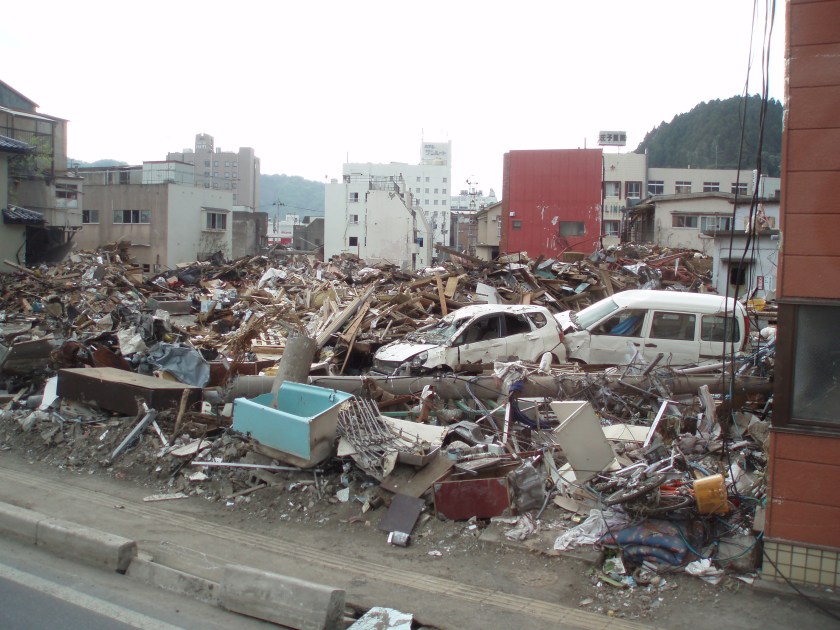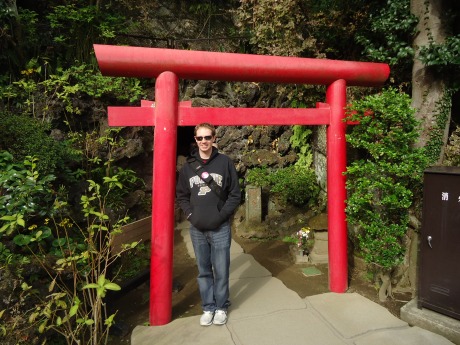It was 2011. It was a chilly day in March.
At first, I felt dizzy. And then, the window blinds started rattling.
More than 300 miles away, an earthquake and subsequent tsunami ravaged Northeastern Japan. Within a couple days, disaster spread to the Fukushima nuclear power plant, and countless foreigners hastily left Japan.
At this point, I was almost three months into my dream job. It was a long journey that started with me picking up my first Japanese rock album in high school, to me wanting to experience living and working in Japan.
I grew up in Bangkok, Thailand, and few years after college, I landed an expatriate manager position in an American-Japanese manufacturing joint venture located in the heart of Japan’s countryside, surrounded by beautiful mountains that reminded me of the Colorado Rockies. One would have to drive past all of the glitzy lights of Tokyo nearly 3 hours inland to reach this facility.
By the time the tsunami struck, it had already been much of an adventure up to this point getting acclimated to the new lifestyle and the language in rural Japan.
Being a true singleton without a surrounding expat community and church was a true test of self-reliance. After my first 8 weeks living there, I was just starting to develop my daily routines of where to buy groceries, where the good restaurants were, which gasoline station was convenient to go to, etc, even starting to plan my first true vacation as an expatriate resident in Japan, when everything came to a sudden stop on March 11, 2011.

Photo courtesy of Raymond Diaz
The great 9.0 earthquake in northeastern Japan struck with vibrations reaching all the way south some 350 miles to my meeting room. After the subsequent tsunami ravaged Japan’s coastline, the ensuing nuclear meltdown at Fukushima and the seemingly out-of-control situation on part of the Japanese utility company, TEPCO, and the overseeing Japanese government, I went into a severe state of shock. My company evacuated me temporarily to Singapore until things had settled in Japan, but a lot of psychological damage was done. I become grotesquely exposed to Japan’s vulnerability in the aftermath of the earthquake.
Later events like aftershocks, North Korean missile launches, dealing with a flight diversion amidst a typhoon and a highway tunnel collapse were repeated stark reminders of Japan being on thin ice at moment’s notice. Whereas before I was very encouraged to travel throughout Japan to see its many wonders, I had mostly retreated to the confines of my apartment outside of work for the next several months, clinging to my Playstation and iTunes downloads, hopelessly in search of a secure bubble of comfort.
During this period, I hit several “bottoms” in my life, suffering from a lot of depression that would later translate into illness. It is not fun to get sick in a foreign country, let alone having to spend time at the hospital. I went from adventure-seeking to living in an environment more different than I expected to gasping desperately for security and stability. Only time and continued resilience were able to unravel the silver linings of these experiences and once my health improved, I was seeing the world a lot differently.
Japanese people have had to endure disasters like this one many times over. Japan’s environment itself is inherently prone to extreme weather and the Japanese have survived time and again by adapting. And, as I learned, I had my own adapting cut out for me so that I could also be successful during my time there.

Photo courtesy of Raymond Diaz
Being a lone American in a small Japanese city isolated deep into its countryside means that you symbolize everything locals experience about America. From a professional standpoint, it also meant that I was the face of my company, too. Its actions would reflect upon me and vice-versa.
I learned some hard lessons in integrity when having to build credibility from zero as the face of my company, which meant having to swallow pride and admit mistakes when someone in my company, including me, contributed to an error in factory operations.
Living in a country that depends on an intensely organized and rule-driven society, I experienced the consequences with colleagues who had misguided feelings towards protecting the status quo and the general lack of people having the individual courage to challenge weaknesses in processes or customer service. Japan in so many ways was stifling to me, and I heard the phrase “that is impossible” more than I cared to.
During my time in Japan, I also learned the value of having a sense of belonging when not being near family, friends and church. I also was exposed to Japan’s penchant for volunteerism and community, especially during the aftermath of the tsunami. I learned that while many perceive Japanese as quiet and inscrutable, they are actually strong listeners. I also saw my pride as a liability, a burden unto my innate desires to produce results and live happily. I learned to adapt to what I saw as constraints for living in Japan, including the nauseating rules for throwing out your trash (which I would be ready to unleash hell if my trash pickup was rejected over a technicality).
Japan was a very humbling experience for me. Had I not come to Japan on an expatriate assignment, I may have never learned these values; or it may have taken me a very long time. Not only did the experience make me appreciate the abundance of choices, land, natural resources, individual identity in the United States, and the personal relationships I have with friends and family, but it also grew a better consensus builder, organizer, and team player in me.